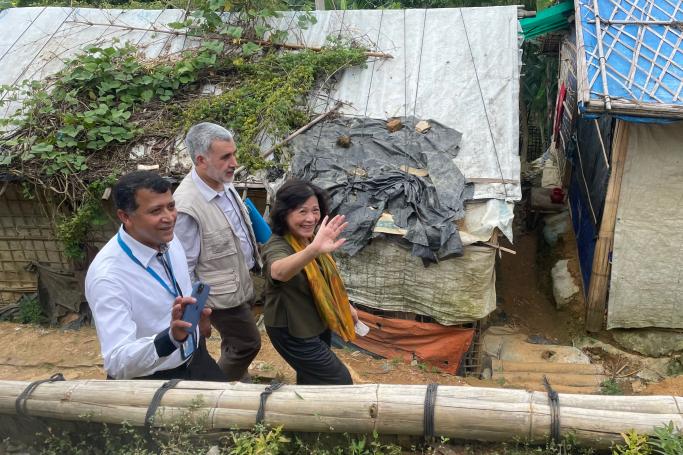A sigh of relief greeted news last week that the United Nations Special Envoy for Myanmar, Noeleen Heyzer, would be stepping down after an 18-month tenure. During her time as envoy for UN Secretary-General Antonio Guterres, Heyzer faced criticism from both the military junta and its opponents.
Myanmar has been in a state of turmoil since the military seized power in February 2021, leading to conflicts with anti-coup fighters and ethnic rebel groups.
Despite diplomatic efforts by the UN and the Association of Southeast Asian Nations (ASEAN), attempts to resolve the crisis and curb the violence unleashed by the coup have been unsuccessful. Heyzer, a Singaporean sociologist, was appointed as the envoy by Guterres in October 2021. Her contract concluded on 12 June, and Guterres expressed gratitude for her tireless efforts on behalf of peace and the people of Myanmar. A spokesman for Guterres stated that a new envoy would be appointed to replace Heyzer.
Heyzer’s replacement faces a tough call – assuming a replacement will be brought in. The replacement will have to deal with the schism over how to handle Myanmar crisis diplomacy.
Heyzer's main role was to encourage the Myanmar junta to engage in political dialogue with its opponents and put an end to the violent crackdown that followed the overthrow of Aung San Suu Kyi's government. In August of the previous year, Heyzer visited Myanmar and met with junta chief Min Aung Hlaing and other high-ranking military officials. However, human rights groups criticized this move, claiming that it lent legitimacy to the generals, with alarm voiced over her suggestion of “power sharing”. Heyzer was not granted a meeting with detained democracy figurehead Aung San Suu Kyi, which further strained relations with the junta. Later, junta officials accused her of issuing a biased statement regarding their discussions. Heyzer subsequently declared that she would not return to Myanmar unless she was allowed to meet with Aung San Suu Kyi, who has since been imprisoned for a total of 33 years by a closed-door junta court, effectively a life sentence.
The big bugbear for critics was a failure to accord status to the opposition National Unity Government (NUG) and other related resistance organizations who effectively, in one form or another, claim to represent the people and the civilian government kicked out of power. If the UN recognizes the coup was illegal, the argument has been made that they need to accept that the NUG and other aligned actors deserve recognition diplomatically.
Last week, the irony of Heyzer publicly meeting with the NUG Foreign Minister was not lost on Myanmar analysts – essentially too little, too late as Heyzer walks off the stage.
All this said, Heyzer was faced with Mission Impossible, an envoy for the UN, an organization that has not handled the Myanmar issue well, troubled by there being two active envoys – Heyzer and Tom Andrews – the latter firing angry salvos against the junta virtually every month.
So, will a new special envoy representing the UN Secretary General be brought in? Let’s wait and see.
With a security, rights and humanitarian crisis underway in Myanmar, a new UN Special Envoy would need to be decisive and engage with all parties – particularly in the wake of Cyclone Mocha and the monsoon bearing down on the country. A number of key UN and other international aid initiatives are facing hold-ups or delays. If the UN, WFP, EU and others make efforts to work with the NUG and other related political and humanitarian organizations, there may be a better chance of delivering aid to those in need.
This, however, is a tough call. Foreign diplomats no doubt have their reservations over how they can deliver aid to both sides – through junta channels, or at least with junta permission, and on the other side, through non-governmental and opposition channels. This is easier said than done.
If a new UN Special Envoy is appointed, they may need to be more inclusive and balanced in their approach.












